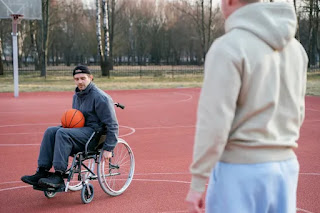Hiking Tips For Seniors With Mobility Challenges Who Still Love The Great Outdoors
Introduction
As we age, many of us find that our mobility isn’t what it used to be. But that doesn’t mean we have to give up our love of hiking and the great outdoors! Here are some tips for seniors with mobility challenges who still want to enjoy hikes and nature:
Choose easy trails: Look for trails that are short and not too steep. Avoid anything with a lot of roots or rocks, as these can be difficult to navigate.
Wear the right shoes: A good pair of hiking boots or walking shoes is essential. They should be well-fitting and provide support for your feet and ankles.
Take breaks: If you need to, take breaks along the way to rest your muscles and catch your breath. It’s better to take your time and enjoy the hike than to push yourself too hard and end up exhausted.
Bring a friend: Hiking with a friend or family member can be more enjoyable – plus, they can help you if you need assistance along the way with your electric wheelchair.
Types
of Adaptive Gear to Consider
There are many types of adaptive gear to consider when hikers have mobility challenges. Hikers need to be aware of their own abilities and limitations in order to hike safely.
Hiking poles provide support and stability while walking, and can be especially helpful on uneven or slippery terrain. There are many different types of hiking poles available, so it is important to choose a pair that is comfortable and easy to use.
Some hikers with mobility challenges may prefer to use a motorized wheelchair on trails that are accessible by it. This allows them to enjoy the outdoors without having to worry about their ability to walk long distances. There are a variety of different types of wheelchairs available, so it is important to choose one that is best suited for the type of terrain that will be encountered on the hike.
Power wheelchairs are something that can add a lot of value to your outdoor trips, and options such as those from WHILL Wheelchair can be a godsend.
Preparing
for Your Hike
Assuming you have your gear in order, there are a few things you can do to prepare for your hike. First, consider the distance and terrain of your hike. If you are used to traversingacross level ground, going up and down hills will obviously be more challenging. Make sure you give yourself plenty of time to rest and take breaks along the way. Secondly, even if the weather is mild, always bring extra layers of clothes in case the temperature drops unexpectedly or you get caught in rain or snow. It's also important to have enough food and water with you. Bring snacks that are high in protein and easy to eat on the go. And finally, be sure to let someone know where you are going and when you expect to return home and keep a compass or GPS unit to understand your whereabouts. This is especially important if you are hiking alone. By following these tips, you can ensure that your hike is enjoyable and safe!
Conclusion
We hope that our tips have gone some way towards helping you plan a successful and enjoyable trip. As seniors, it is important to take the time to prepare for your hike by assessing any areas which could present mobility challenges. However, this should not stop you from exploring the great outdoors safely and comfortably - there are many adaptations available and ways in which you can make sure you enjoy a stress-free day out with family or friends, such as bringing an electric wheelchair. With proper planning and preparation, there is no reason why seniors with mobility challenges cannot have just as much fun on their outdoor adventure!

.jpg)


Comments
Post a Comment